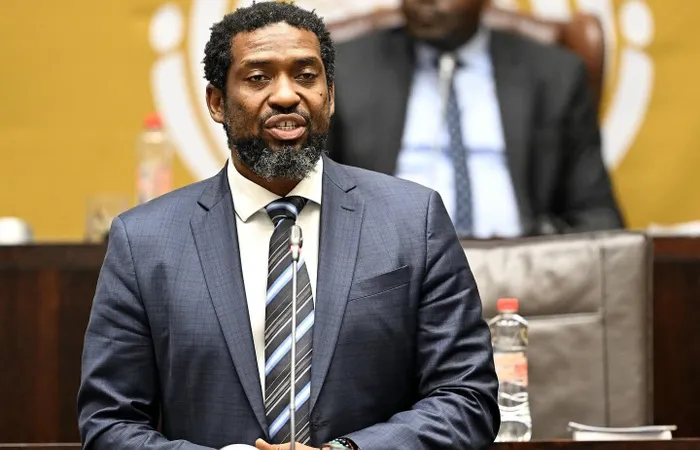
Minister of Higher Education Buti Manamela to brief media on 2026 academic readiness and NSFAS applications.
Image: Parliament of South Africa / Facebook
The Minister of Higher Education and Training, Buti Manamela, is set to brief the media on the state of readiness of universities and colleges for the 2026 academic year, as well as the opening of applications for the National Student Financial Aid Scheme (NSFAS).
The briefing is taking place at the Ronnie Mamoepa Media Centre, Tshedimoso House, in Pretoria.
According to a statement issued by the department, the update will focus on the Post-School Education and Training (PSET) sector’s readiness for the upcoming academic year.
This includes preparations by universities, Technical and Vocational Education and Training (TVET) colleges, and Community Education and Training (CET) colleges.
“The briefing will take place as the department continues to implement a comprehensive overhaul of the PSET system aimed at expanding access, strengthening quality, and improving efficiency across the system, as recently announced by the Minister,” the department said.
Manamela is expected to outline key developments in the sector, including infrastructure, student accommodation, institutional capacity, and access to financial aid.
Manamela will also announce the official opening of the 2026 NSFAS application process, which began on Monday, September 15.
This comes amid ongoing challenges faced by students in the higher education sector, including late disbursement of NSFAS allowances, inadequate accommodation, poor infrastructure, and mounting student debt that prevents some from receiving their qualifications.
Despite repeated concerns raised by student bodies over the years, many of these issues remain unresolved.
Last month, IOL News reported that NSFAS CEO Waseem Carrim revealed the scheme is owed R45 billion in outstanding student loans.
These debts, which date back to 2018 and earlier, include loans granted by both NSFAS and its predecessor, the Tertiary Education Fund of South Africa (TEFSA).
NSFAS was officially established in 1996, while TEFSA, a non-profit organisation created in 1991, initially administered the fund until it was converted into a statutory body in 1999.
Carrim admitted that the fund has struggled with debt collection.
“It has not had the best debt management strategy. But we cannot, as a board and management, continue to sit on that substantial amount of debt and not collect it.”
He said that many former beneficiaries are now employed and urged them to begin repayments.
“We know that the majority of graduates in South Africa are employed. Therefore, our view is that students who took up loans, graduated as a result of the fund, and are now employed must repay their debt - not only to NSFAS but to society as well.”
NSFAS board chairperson Karen Stander also confirmed that the scheme is reaching out to those who received financial aid before 2018.
”We are reminding them of their contractual obligation to repay once they earn more than R30,000 per year,” she said.
“Debtors earning above R30,000 per year who are not currently making the minimum repayments may have their accounts handed over to an external debt collector (EDC).”
simon.majadibodu@i.co.za
IOL News